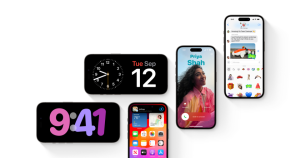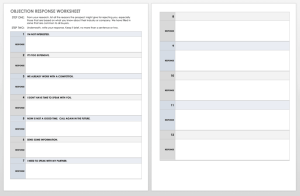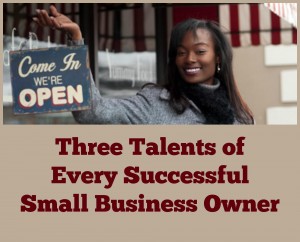
QuinceMedia / Pixabay
Second only to the first few months of the new year, Fall is the 2nd best time to capitalize on a strong market — and a company in hiring mode. According to Career Sidekick blogger Biron Clark, hiring tends to occur in waves. Since summer is usually a season of downtime, things tend to speed up come autumn. As an executive resume writer, I’ve witnessed these seasonal hiring patterns firsthand. In my experience, job seekers hunting in the fall can capitalize on a great time where hiring actions are influenced by these prevalent mindsets.
-
The Vacation Mindset Is Gone
After Labor Day, most hiring managers, recruiters and candidates have wrapped up their summer vacations. This means everyone is in the office at the same time, and scheduling glitches become less problematic.
Positions that will be filled only after multiple rounds of interviews tend to go more smoothly in the fall because everyone is around to conduct them.
-
The Holiday Mindset Is Around The Corner
Many companies want to have job offers extended before the “Thanksgiving to New Year” mindset sets in.
Once mid-November rolls around, many departments start to put hiring goals on a back burner to be revisited early in the next year, and people begin to focus on all the other things that make up this time of year — from festive celebrations to family reunions.
-
The “Use It Or Lose It” Mindset
Financially speaking, September and October are months when hiring managers can utilize funds left unspent from their annual budgets. The bottom-line? If they don’t hire by January, they risk losing the money altogether.
Other companies take the month of August to analyze spending from the first half of the year. If they are in sound fiscal shape, September and October become months where spending (in the form of hiring!) takes place more freely.
How To Capitalize On The Hiring Season
Want to make sure to give yourself the best shot at landing an interview at this time? Follow these three tips:
-
Do your homework
Targeted research can give you an added edge when it comes to executing a smart and effective job search. Get started on identifying roles and companies of interest via tools like LinkedIn, Twitter, online city business journals, corporate websites and job boards.
You can begin by identifying 20–25 target companies and searching for either recruiters or direct managers on LinkedIn. For smaller companies, you may need to call and ask the receptionist to share the name. Once you’ve found them, determine if any of the contacts in your current network can introduce you.
If so, reach out to them with a brief InMail — explain your interest, or that you’ve applied for a particular position and would love an introduction. Next, reach out to the individual directly with a similar note, reiterating your qualifications and, if applicable, mentioning your mutual connection.
-
Get your career marketing documents ready
You wouldn’t go to an interview wearing clothes from a decade ago, right? Treat your career marketing documents (aka your LinkedIn, resume, social media profiles) the same way!
Make sure they are current in format and content and show that you are an ideal fit for roles you are targeting and an expert in the industry that interests you. The four resume components listed below are key to an effective skim read, whether the reader is reviewing this on a desktop, a laptop or a mobile device:
- Career title: Lead off with a one-line resume career title that informs the reader of the types of roles and/or industries to which you are well-suited.
- Branding paragraph: Skip the generic summary that could describe anyone. Include instead a brief paragraph that describes strengths and traits that are unique to you, as well as language that aligns with the qualifications asked for in job postings of interest.
- Bullets versus blocks: Online readers struggle with reading dense blocks of text. Keep your paragraphs or bullets to two to three lines, and insert at least one-half inch of white space by hitting the “enter” or “return” button on your keyboard between each and every bullet or paragraph.
- Bullets with achievements at the beginning: Make sure you start out every sentence in your bullet with the part that provides the greatest impact so it’s the first thing the reader sees. For example:
“Saved organization $ 7 million through vendor contract negotiations” versus “Led vendor contract negotiations that saved organization $ 5 million.”
-
Start talking
As someone who offers resume and LinkedIn writing services for a living, I know that strong documents are only half of a recipe for job search success. The other half comes with networking. Building and leveraging a robust network of everyone from close friends to decision makers and everyone in between requires legwork but will pay off in spades.
Options for reaching out to people you know include email, phone calls and LinkedIn. Remember to customize your message so your friend or colleague is reminded of the type of work you’re targeting. It’s OK to take this opportunity to ask for any referrals or words of wisdom regarding next steps.
If you’re reaching out to someone for the first time, you can use InMail or do some sleuthing to uncover their professional email address. Try looking at a corporate press release or the “contact us” section of a company’s website to uncover how their employees’ emails appear (i.e., CamNewton@CharlottePanthers.com or CNewton@CLTPanthers.com).
Another option? Type in the company’s name with @ in front of it on any search engine (i.e., @CharlottePanthers.com) and see what pops up!
The case for a fall job search is pretty compelling. Timing isn’t always everything — but it certainly helps. With in-depth research, great documents and a solid networking strategy, timing may be on your side when it comes to a successful job hunt!
Business & Finance Articles on Business 2 Community
Author: Virginia Franco
Virginia Franco, NCRW, CPRW is a double-certified Executive Resume Writer and the owner of Virginia Franco Resumes. Her resumes are 100% customized for today’s readers and garner interviews in 60 days. Her LinkedIn profiles are amongst the Top 1% viewed.
Virginia’s clients are smart senior executives, business owners, candidates in… View full profile ›
(80)
Report Post






